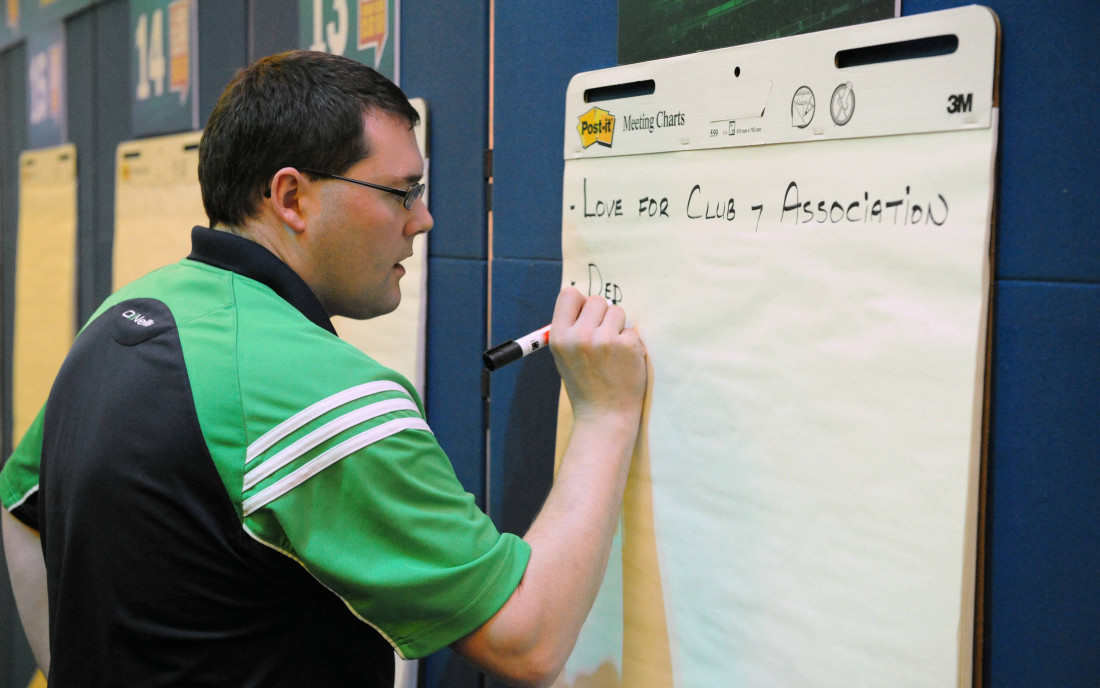A CLUB chairperson has been entrusted with responsibility for ‘leading’ the club. A chairperson’s leadership should encourage participation by all the club volunteers in club decision-making and acknowledge the roles of others.
Ideally the chairperson should be someone who has time to put genuine effort into the job, has a clear understanding of the importance of the GAA in their local community and has the necessary knowledge of the administration and workings of the GAA at club, county, provincial and central level.
It is vitally important that the chairperson acts with integrity at all times and ensures that he/she has the respect of their fellow officers and club members. The chairperson needs to develop an overview of the committee and the club’s objectives over their term of office so that he/she can facilitate good decision-making and identify and address conflict if it arises with the club.
Skills required to be a chairperson:
– Enthusiasm
– Organisation
– Timekeeping
– Decision making
– Confident at public speaking and keeping order during meetings and when making presentations within the Club.
– Leadership
– Integrity
The chairperson has prime responsibility for the following areas in the club:
– Planning: Overseeing the strategic direction of the club and ensuring the club has a vision.
– Delegation: Ensuring the management committee members, sub-committee members and club members are aware of their roles and responsibilities within the club, in addition to delegating special projects within the club to sub-committees or workgroups.
– Prime representative of the club to the outside world. Ideally the club chair should act as delegate to the county board and should liaise with external organisations and other local community groups if necessary.
– Overall management of the club: Working with both the secretary and the treasurer to ensure that the day-to-day tasks are carried out within the club.
The duties of the chairperson are:
1) Chairing all club management committee meetings, general club meetings, emergency general meetings and annual general meetings. In the event of tied vote at any of the above meetings the chair shall have the casting vote.
2) Represent the club at county committee meetings as and when required.
3) Take responsibility for managing the club management committee and the affairs of the club.
4) Oversee and guide all decisions taken by the management committee and sub committees.
5) In liaison with the secretary, oversee the work of all officers.
6) In conjunction with the secretary, prepare and present the annual report.
7) Liaise with the secretary on the agenda for each meeting and review the minutes before they are circulated.
8) Be completely familiar with the official guide, club constitution and GAA committee procedures.
9) Liaise with the treasurer to ensure that the management committee approves all funds and ensure that they are spent properly and in the best interests of the club.
10) Help the club development officer, treasurer or other committee members prepare and submit any statutory documents that are required (e.g. grant aid reports, CASC, etc).
11) Chairpersons automatically assume the role of designated liaison person unless otherwise appointed and ratified by the club xecutive. They should complete Safeguarding 3 and work alongside their club children’s officer to implement GAA Code of Behaviour within the club.
12) The chairperson may, subject to approval by the club management committee, appoint chairs and members of club sub-committees.
13) Sign the minutes of previous meetings.
14) If unable to attend any committee meeting, a written report should be sent to the meeting and the vice-chairperson briefed on the agenda.
It is good practice for a chairperson to serve no more than five years in office, (three years would be preferable) to encourage other committee members to serve in the position.
Receive quality journalism wherever you are, on any device. Keep up to date from the comfort of your own home with a digital subscription.
Any time | Any place | Anywhere












